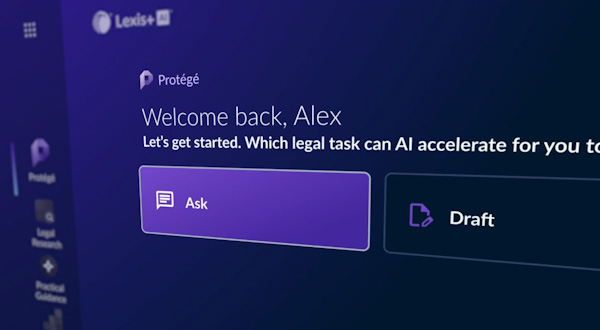How late-career litigators can reinvent themselves as law firm mentors

John R. Sparks Jr.
“Do you have a minute?” In my job, the answer to that question has to be “yes”—almost always. No one arrives in your office with a pained look on their face, unless it involves something that needs to get done now. Maybe it doesn’t rise to the level of a practice crisis or emotional emergency, but the lawyer across from you wants to complete this task right away.
The above scenario is part of my everyday “practice” at my law firm, Fowler Hirtzel McNulty & Spaulding. A lawyer comes in to ask about strategy, billing, case value, a potential screwup or just to review an aspect of a case. I view it as my responsibility to be available. It’s where the value is.
Our firm has been in existence for six years, and we are now 30 lawyers practicing in four offices. For the most part, our firm is in the personal injury defense business. I don’t say “insurance defense” because we also represent regional, national and international corporations who manage their own claims and who have varying degrees of dollar destiny control. This can be a distinction with a difference.
I joined the firm within a matter of weeks of its opening. I thought then, and I think now, that the hire was bold and creative for reasons that have absolutely nothing to do with me.
My current job is a new take on an old role. I was hired to run the quality program for the firm, from data collection and interpretation to file review. That is a relatively unusual role at an insurance defense firm, especially for a small startup. We believe that having someone with decades of file handling and trial experience helps questions to be answered, files to be resolved more efficiently and supervising lawyers to practice with fewer distractions.
More than that, I serve as a resource for the firm. Managing partner Joe Fowler made it clear that if anyone had strategy questions, and the file handling partner wasn’t available, they could “ask John.” As a long-time practicing trial attorney, I had worked with many associates as a mentor, instructing lawyers who worked with me. This training was usually on cases we were working on together. I was a teacher a million years ago and enjoyed the mentoring process.

My role is to be another set of eyes. Obviously, this could be done by supervising partners. However, in a busy trial firm, those lawyers are not always available. I avoid logjams for busy supervisors on a firmwide basis. I can also routinely take the time to discuss cases or processes in detail. It’s not that partners can’t or don’t provide guidance. I’m able to keep the wheels turning during a period when supervisors are on trial, in weeks of depositions or traveling for work or pleasure. Because I know the lawyers and the cases, I can hopefully add value.
What I don’t do is bill time to the clients. I resolutely maintain that I’m worth every dollar I didn’t bill. The “you get what you pay for “jokes are acknowledged. Nevertheless, our clients have been impressed by the nonbillable commitment. In an atmosphere that increasingly values efficiency, I’m a useful resource.
Much of what I do is assist in evaluation. The evaluation may be about liability, value or case strategy. I try to walk through a process that teaches and reinforces the steps that need to be taken to get to the answer. As the younger lawyer’s progress, they get faster at applying the necessary analysis to the benefit of the clients.
For example, we tried a trucking accident case with significant injuries. The plaintiff’s expert provided a report with some errors of calculation, which we felt we could exploit. However, the expert testified regularly and was known as a superb witness who could wiggle out of any problem area. I spent a day with the trial attorney as we worked and reworked both the questions and the sequence of the cross-examination so that we could take advantage of the perceived errors. The testimony went well for us, and we settled the case for a favorable number.
The trial lawyer could certainly handle the cross-exam himself. Having an experienced trial lawyer to consult allowed another view to add to the focus and organization of the approach.
What veteran lawyers have to offer in a teaching role is as particular as the person. Your value to the firm depends on what the partners value and the extent to which your strengths play into that.
Rule No. 1 is easy: You can’t be a jerk.
While that’s a pretty solid life rule, it’s even more important when giving advice to lawyers. Asking for help is hard. So, if you are looking for someone to serve this role in your firm, ask a couple of basic questions. Does the candidate end a lot of back-and-forth with younger lawyers with the question, “Are you some kind of moron?” Or do you tend to hear a lot of, “Did you go to an accredited law school?”
I wish I could say that I was never that guy, but I’m certainly not him now. Namaste.
So, how do you approach consultations? Listen, ask questions, solicit input from the visitor and give suggestions, not fiats. And on the rare occasions when you provide useful input, no preening.
Don’t be afraid to say, “I don’t know.” Nobody knows it all. I may be the least valuable person on planet Earth to ask about strategic pleading in Pennsylvania and New Jersey. But I know who in the firm will have the answer.
When I refer someone to another lawyer, I attend the meeting. It allows me to learn the answer, and I hope it shows my appreciation for their time and that the firm truly values a cooperative practice.
More general rules: Take your time. The nature of our business is to assess and get to the next case, issue or prep session. But the problem and/or the answer may be beneath the surface of the initial conversation. Both parties need to take the time to figure out the why. An extra minute might clarify an issue for both of you. There’s often a layer, known or unknown, to a problem that brings somebody to your office.
Don’t do the “I got this “answer until you know the question.
One more piece of advice: You’ll tell war stories. You won’t be able to help yourself. Try to help yourself—try really hard to help yourself. Watch for the glazed eyes and the drooped shoulders. That’ll tell you how enthused the stressed, busy lawyer is to hear about how you torched some expert. Especially when this is the fourth time they’ve heard the story.
The sound you’ve just heard is every lawyer in my firm quietly saying “amen.”
Questions revolve around repeated themes. You’ll talk about liability assessments, case values and issues regarding the care and feeding of experts. You’ll review reports for content and style. You’ll answer lots and lots of billing questions.
I enjoy helping lawyers get ready to face a jury. We need to teach lawyers to try cases and work like crazy to get appropriate cases into courtrooms. I appreciate that painfully few cases try. A lawyer who will take a case to trial has another arrow in their resolution quiver, especially if the opponent won’t try the case.
There is no better way to learn your craft than to prepare a case for trial and then try it.
Over the last six years, I’ve been challenged by new litigation realities. I’ve been fascinated by examining new approaches to old problems. I’ve appreciated that some old approaches still work. I’ve learned.
Most important, I’ve been honored to participate in the professional growth of smart and dedicated young professionals. They have taught me more than I could ever teach them.
Pretty cool, huh?
John R. Sparks Jr. is of counsel with Fowler Hirtzel McNulty & Spaulding. His roles include the management and oversight of the firm’s quality programs, training of the firm’s associates and business development.
Mind Your Business is a series of columns written by lawyers, legal professionals and others within the legal industry. The purpose of these columns is to offer practical guidance for attorneys on how to run their practices, provide information about the latest trends in legal technology, and how it can help lawyers work more efficiently, and strategies for building a thriving business.
Interested in contributing a column? Send a query to [email protected].



